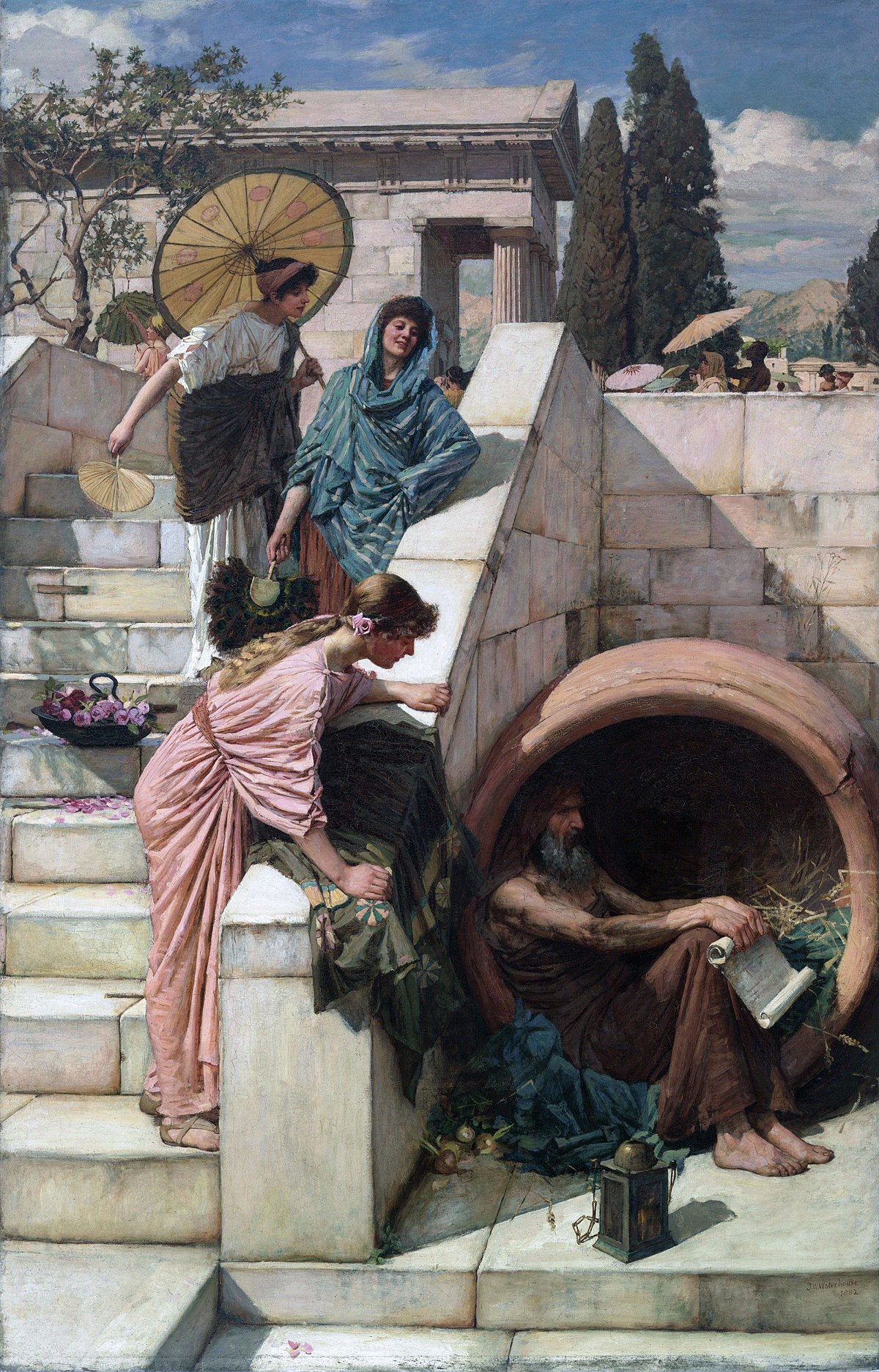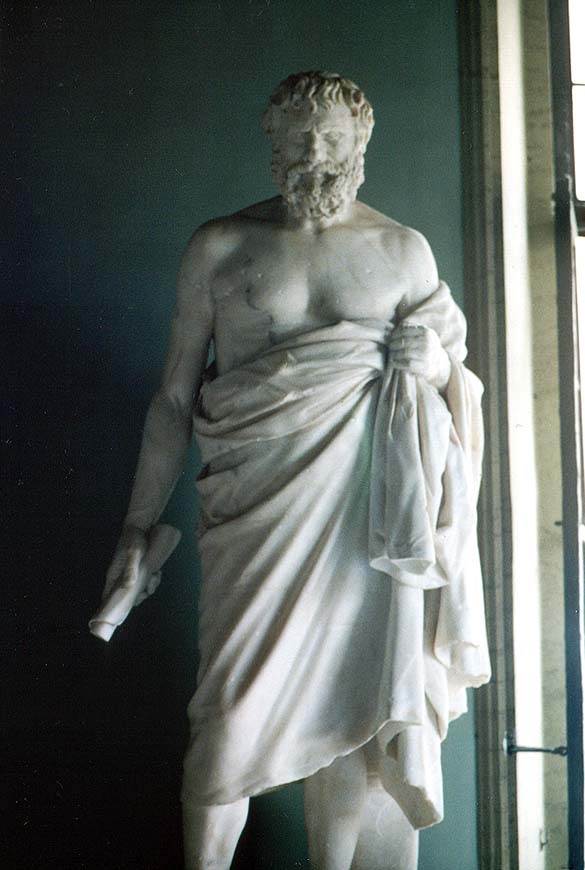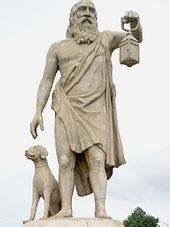steve_bank
Diabetic retinopathy and poor eyesight. Typos ...
I listed to a BBC radio history show on the ancient Greek Cynics. Like Christianity there is little surviving direct writings.
They appear to have been a combination of modern libertarian and a back to nature movement. They rejected the industrialization and Greek curural norms of the day.
They libed simply. Tjey did not cut har or use fixed dwellings. Went barefoot and wore a simple unadorned cloak, which they spet in.

 en.wikipedia.org
en.wikipedia.org

 en.wikipedia.org
en.wikipedia.org
It would apear there is nothing new today about us humans. Except now WMD on a massive global scale with which to express ourselves.
Those who think they are going to socially reengineer humanity are sadly misguided.
They appear to have been a combination of modern libertarian and a back to nature movement. They rejected the industrialization and Greek curural norms of the day.
They libed simply. Tjey did not cut har or use fixed dwellings. Went barefoot and wore a simple unadorned cloak, which they spet in.

Diogenes - Wikipedia
Diogenes as dogged or dog-like
Many anecdotes of Diogenes refer to his dog-like behavior, and his praise of a dog's virtues. It is not known whether Diogenes was insulted with the epithet "doggish" and made a virtue of it, or whether he first took up the dog theme himself. When asked why he was called a dog he replied, "I fawn on those who give me anything, I yelp at those who refuse, and I set my teeth in rascals."[22] Diogenes believed human beings live artificially and hypocritically and would do well to study the dog. Besides performing natural body functions in public with ease, a dog will eat anything, and make no fuss about where to sleep. Dogs live in the present without anxiety, and have no use for the pretensions of abstract philosophy. In addition to these virtues, dogs are thought to know instinctively who is friend and who is foe.[56] Unlike human beings who either dupe others or are duped, dogs will give an honest bark at the truth. Diogenes stated that "other dogs bite their enemies, I bite my friends to save them."[57]

Statue of Diogenes at his birthplace in Sinop, Turkey
The term "cynic" itself derives from the Greek word κυνικός, kynikos, "dog-like" and that from κύων, kyôn, "dog" (genitive: kynos).[58] One explanation offered in ancient times for why the Cynics were called dogs was that Antisthenes taught in the Cynosarges gymnasium at Athens.[59] The word Cynosarges means the place of the white dog. Later Cynics also sought to turn the word to their advantage, as a later commentator explained:

Cynicism (philosophy) - Wikipedia
Cynicism (Ancient Greek: κυνισμός) is a school of thought of ancient Greek philosophy as practiced by the Cynics (Ancient Greek: Κυνικοί; Latin: Cynici). For the Cynics, the purpose of life is to live in virtue, in agreement with nature. As reasoning creatures, people can gain happiness by rigorous training and by living in a way which is natural for themselves, rejecting all conventional desires for wealth, power, and fame, and even flouting conventions openly and derisively in public. Instead, they were to lead a simple life free from all possessions.
The first philosopher to outline these themes was Antisthenes, who had been a pupil of Socrates in the late 400 BC. He was followed by Diogenes, who lived in a ceramic jar on the streets of Athens.[2] Diogenes took Cynicism to its logical extremes, and came to be seen as the archetypal Cynic philosopher. He was followed by Crates of Thebes, who gave away a large fortune so he could live a life of Cynic poverty in Athens.
Cynicism gradually declined in importance after the 3rd century BC,[3] but it experienced a revival with the rise of the Roman Empire in the 1st century. Cynics could be found begging and preaching throughout the cities of the empire, and similar ascetic and rhetorical ideas appeared in early Christianity. By the 19th century, emphasis on the negative aspects of Cynic philosophy led to the modern understanding of cynicism to mean a disposition of disbelief in the sincerity or goodness of human motives and actions.
It would apear there is nothing new today about us humans. Except now WMD on a massive global scale with which to express ourselves.
Those who think they are going to socially reengineer humanity are sadly misguided.
